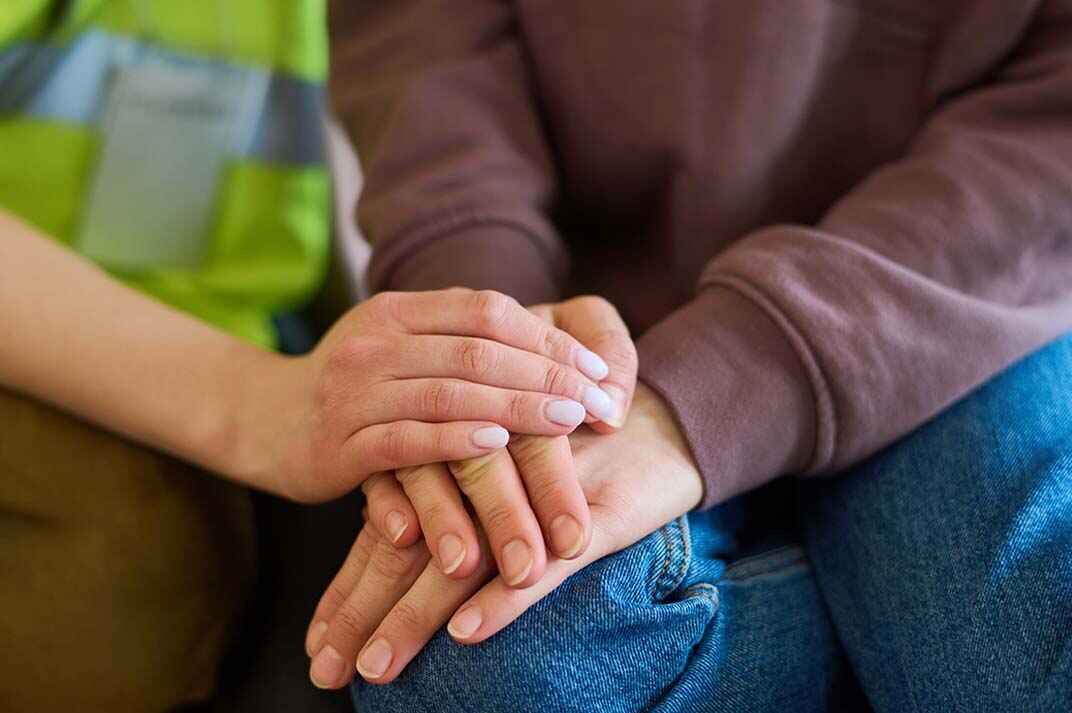Introduction to the Marchman Act and Addiction Recovery
The Origins of the Marchman Act
The Marchman Act, a legislative innovation in the state of Florida, was primarily established to offer a legal solution to families and loved ones witnessing the harrowing grips of substance abuse. Rooted in the desire to safeguard individuals from the dangers of addiction, the Act provides for court-ordered involuntary assessment and stabilization for those struggling with substance misuse. It acts as a beacon of hope for countless individuals and their families, ensuring that those in the thralls of addiction can get the necessary treatment.
Originating in Florida law, the Marchman Act Blog details its intricate legal mechanisms and commitment proceedings. Offering insights into patient rights, legal mandates, and court-ordered interventions, the Act ensures a comprehensive and evidence-based approach to address the multifaceted challenges posed by addiction.
Understanding Addiction Recovery
Addiction recovery is a complex and multi-faceted journey. Tackling drug dependence or alcoholism isn’t just about detoxification; it’s a holistic process encompassing mental, emotional, and physical healing. From understanding the withdrawal symptoms to the nuances of outpatient programs and the importance of peer support, the recovery journey mandates professional intervention and unwavering commitment.
The Marchman Act Blog often stresses the need for evidence-based treatment, therapy sessions, and the indispensable role of addiction counselors. Addiction science continually evolves, and the journey from substance use disorder to sobriety is paved with challenges and milestones alike.
The Marchman Act: Dive into the Basics
Overview of The Marchman Act
As a bedrock of addiction intervention in Florida, the Marchman Act empowers families to petition for the protective custody of a loved one grappling with substance misuse. By legally mandating the person into treatment, the Act serves as a vital lifeline. From the initial clinical assessment to the treatment modalities, every aspect of the Marchman Act underscores its commitment to individualized treatment and long-term solutions to addiction.
This Act is unique to Florida and stands as a testament to the state’s commitment to battling the addiction crisis. The legal requirements of the Marchman Act are rigorous, ensuring patient confidentiality, consent, and advocacy throughout the rehab process.
Florida Law and Its Implication on Addiction
Florida’s proactive stance on addiction is evident in the establishment of not just the Marchman Act but also its Baker Act, addressing mental health crises. While the former emphasizes substance abuse treatment, the latter deals with mental health emergencies. The intersectionality of co-occurring disorders, dual diagnosis, and harm reduction strategies is central to Florida’s approach to behavioral health.
The Marchman Act, as detailed in the About Marchman Act section, represents Florida’s dedication to creating a solid foundation for addiction rehabilitation. By establishing legal options for involuntary treatment, it hopes to reduce instances of drug overdose and escalation of addiction severity.
How to Connect with Marchman Act Addiction Treatment Services
Contacting Marchman Act Addiction Treatment
Reaching out to Marchman Act Addiction Treatment is a significant step in the recovery process. By contacting Marchman Act Addiction Treatment, individuals and their families get access to a range of therapeutic interventions. These treatments, varying from motivational interviewing to family therapy, are tailored to the needs of the individual, ensuring the best chances of long-term sobriety.
Accessibility and openness are at the core of Marchman Act Addiction Treatment. The Contact Marchman Act Addiction Treatment page provides all necessary details for families and individuals to initiate the crucial first step.
Services Across Various Counties
Marchman Act services span across several Florida counties, ensuring its reach is extensive. For residents in Miami-Dade County, Broward County, or even Sarasota County, Marchman Act facilities are well within reach. Each county, be it Hillsborough County, Pasco County, or Pinellas County, boasts dedicated teams of addiction specialists, ensuring personalized care for every patient.
Furthermore, counties like Leon County, Orange County, and Duval County have renowned Marchman Act centers with stellar treatment success rates. No matter where one is located, from Alachua County to Hernando County, there’s always a Marchman Act center nearby.
Comparing Residential Rehab: Marchman Act vs. Others
Benefits of Residential Rehab Under the Act
The Marchman Act, primarily known through the reference website page Marchman Act Addiction Treatment, offers distinctive advantages in residential rehab. One of the crucial components is involuntary assessment. With alarming rates of drug overdose and substance use disorder, this act empowers families to intervene. The patient, even without consent, can be admitted to stabilization units, providing a window for the detoxification process to commence.
Beyond just detox centers, the Marchman Act emphasizes a holistic approach. While most rehabs in areas like Marchman Act Near Palm Beach County or Marchman Act Near Orange County focus on just addiction therapy, Marchman Act Addiction Treatment integrates dual diagnosis and mental health services, ensuring patients receive care for co-occurring disorders.
How Other Rehabs Operate
Standard rehabs typically follow evidence-based treatment methodologies. Most rely on patient consent for treatment and might not have the legal mechanisms to treat individuals who resist rehabilitation. These conventional facilities often utilize a combination of group therapy sessions, individual counseling, and 12-step programs to help patients on their recovery journey. The treatment duration and modalities vary based on addiction severity, patient’s personal history, and other health conditions.
However, one significant distinction between standard rehab centers and those under the Marchman Act is the involuntary nature of the latter. While traditional addiction rehabilitation centers emphasize patient rights and consent, the Marchman Act allows for court-ordered involuntary treatment for those deemed to be at risk due to substance misuse. This makes the Marchman Act a critical tool, especially when dealing with patients in denial or those unaware of the gravity of their condition.
Outpatient Services and Relapse Prevention
Marchman Act’s Approach to Outpatient Care
The outpatient services, as outlined in the Marchman Act Addiction Treatment Programs, combine clinical assessment with a blend of therapy sessions, peer support, and medication-assisted treatment. The therapy often incorporates motivational interviewing techniques, enhancing the patient’s internal drive towards recovery and reducing the chances of relapse.
Outpatient care plays an integral role in the recovery process. Under the Marchman Act, outpatient services are meticulously crafted, tailored to individual needs. The Marchman Act Near Me page on the website offers resources for such outpatient programs across various counties, ensuring patients receive consistent support close to their homes. This approach fortifies the patient’s determination to stay on the path of sobriety.
The Role of 12-step Programs and Peer Support
12-step programs and peer support form a cornerstone in addiction recovery, be it under the Marchman Act or traditional rehabilitation settings. They provide a structured path, combining spiritual and practical principles, guiding recovering addicts towards sobriety. Peer support complements these programs. Sharing experiences, challenges, and triumphs with others who’ve treaded a similar path fosters a sense of belonging and motivation.
Additionally, the Marchman Act Blog offers insights, stories, and guidance related to these 12-step programs and the benefits of peer interactions. Emphasizing the importance of community in the recovery journey, the blog serves as a testament to the collective strength in battling addiction.
Delving into Drug Dependency and Addiction Rehabilitation
Understanding Drug Dependency
Drug dependency, at its core, is an intricate blend of physiological and psychological elements. On one hand, there’s the physical craving, withdrawal symptoms, and chemical dependency. On the other, psychological elements like emotional reliance, stress, trauma, or co-occurring disorders often serve as triggers. These dual challenges make addressing addiction a daunting task.
However, the science of addiction therapy has evolved. Therapeutic communities, harm reduction strategies, and behavioral health interventions have emerged as effective measures against substance misuse. Recognizing these complexities, the Marchman Act has incorporated such strategies, ensuring a multifaceted approach to treatment.
Marchman Act’s Rehabilitation Process
The Marchman Act’s rehabilitation process focuses on offering individualized treatment. Post the involuntary assessment, patients are introduced to a range of therapeutic interventions, each tailored to their unique needs. These can range from crisis stabilization, detox centers, to specialized outpatient programs.
Marchman Act’s approach champions family involvement. Recognizing that addiction affects not just the individual but also their loved ones, family therapy is often an integral part of the recovery process. With such a comprehensive outlook, the Marchman Act paves the way for a deeper, more resilient healing process.
The Legal Landscape: Patient Rights and Proceedings
Patient Rights Under the Marchman Act
While the Marchman Act does allow for involuntary treatment, it’s crucial to emphasize the act’s robust focus on patient rights. From the outset, commitment proceedings under the Act are designed with patient advocacy in mind. These legal options ensure that individuals are not unduly committed and that the treatment is indeed in their best interest.
Furthermore, patient confidentiality remains a cornerstone. Regardless of the involuntary nature of the assessment or treatment, the Marchman Act upholds the sanctity of patient information. From clinical assessment results to treatment plans, all details remain strictly confidential.
Legal Mechanisms and Requirements
Navigating the Marchman Act’s legal intricacies can be challenging. The act sets specific legal requirements, starting with family petitions for involuntary assessment and continuing through court-ordered intervention. This ensures that the intervention is not just a matter of personal or family concerns but stands up to legal scrutiny.
Additionally, professional intervention is often sought to present evidence of the individual’s substance misuse. Legal mandates, as detailed in the About Marchman Act page, offer clarity on how the intervention is structured, ensuring transparency and adherence to due process.
Marchman Act In Various Countries: How to Access Services
Importance of Location-Specific Recovery Resources
Recovery, while a deeply personal journey, often requires community and familial support. This makes the proximity of treatment resources essential. By ensuring that the patient remains close to their home, family, and familiar surroundings, recovery often sees a higher success rate.
For those in Florida, the website’s Marchman Act Near Me page provides a comprehensive list, from Marchman Act Near Miami-Dade County to Marchman Act Near Leon County, ensuring residents are well-informed of their local resources. Such location-specific resources not only ease logistical challenges but also fortify the patient’s support system.
The Difference in Services Across Counties Like Miami-Dade and Broward
While the essence of the Marchman Act remains consistent, different countries might offer nuanced treatment alternatives. For instance, the Addiction Treatment Programs in Broward County might emphasize dual diagnosis treatments more than other counties. On the other hand, the Marchman Act Near Miami-Dade County might focus extensively on addressing drug overdose challenges specific to the region.
It’s imperative to understand these distinctions, as they cater to the unique challenges and demographics of each county. Such tailored approaches, when combined with the core tenets of the Marchman Act, promise more effective and individualized treatment strategies.
Website Features and Recovery Resources
An Overview of Marchman Act Addiction Treatment Website
The Marchman Act Addiction Treatment website serves as a beacon of hope for many, providing a vast array of resources and information dedicated to combating addiction. From understanding the intricacies of the Marchman Act to diving deep into the Baker Act, the website is a treasure trove of knowledge.
The Addiction Treatment Programs page offers insights into evidence-based treatment approaches that have been pivotal in the recovery process of countless individuals. Furthermore, the Marchman Act Blog keeps readers updated with the latest research, success stories, and expert opinions in the world of addiction science.
Lastly, the holistic approach adopted by the Marchman Act Addiction Treatment is evident in its dedication to both mental health and addiction therapy, ensuring that individuals receive a rounded, effective treatment plan tailored to their needs.
Navigating County-Specific Resources
Navigating the complex web of addiction recovery can often seem daunting. Fortunately, the Marchman Act Addiction Treatment website simplifies this by offering county-specific resources, ensuring that wherever you are in Florida, help is just a click away. Be it Marchman Act Near Miami-Dade County or Marchman Act Near Polk County, each page provides localized insights, making the journey to sobriety smoother.
Moreover, the diversity of locations like Marchman Act Near Sarasota County, Marchman Act Near Brevard County, and Marchman Act Near Hillsborough County ensures that no matter where you reside, there’s a specialized team nearby, ready to assist you on your road to recovery.
Conclusion: Evaluating the Long-Term Solutions of the Marchman Act
Reflecting on the Recovery Journey Under Marchman Act
The Marchman Act stands as a testament to Florida’s commitment to addressing the challenges of addiction. By allowing court-ordered involuntary treatments, the Act ensures that those most vulnerable receive the care they desperately need. But beyond the mandate, it’s the Marchman Act’s comprehensive approach that truly stands out.
The journey, from detoxification, therapeutic communities, to outpatient programs, is meticulously crafted. By incorporating evidence-based treatment, family involvement, and community support, the Act promises a recovery process that is both deep-rooted and sustainable. Moreover, with the integration of legal safeguards, patient rights are upheld, ensuring that the treatment remains ethical, transparent, and in the best interest of the individual.
Recommendations and Next Steps
To those contemplating addiction recovery, be it for oneself or a loved one, it’s pivotal to understand the resources at your disposal. While voluntary treatments offer immense value, there are situations where they might prove inadequate. In such instances, the Marchman Act emerges as a powerful tool.
Engaging with professionals, understanding the legal landscape, and leveraging location-specific resources, from Marchman Act Near Collier County to Marchman Act Near Alachua County, can make a profound difference. The journey might be challenging, but with the right resources, support, and determination, sustainable recovery is within reach.



